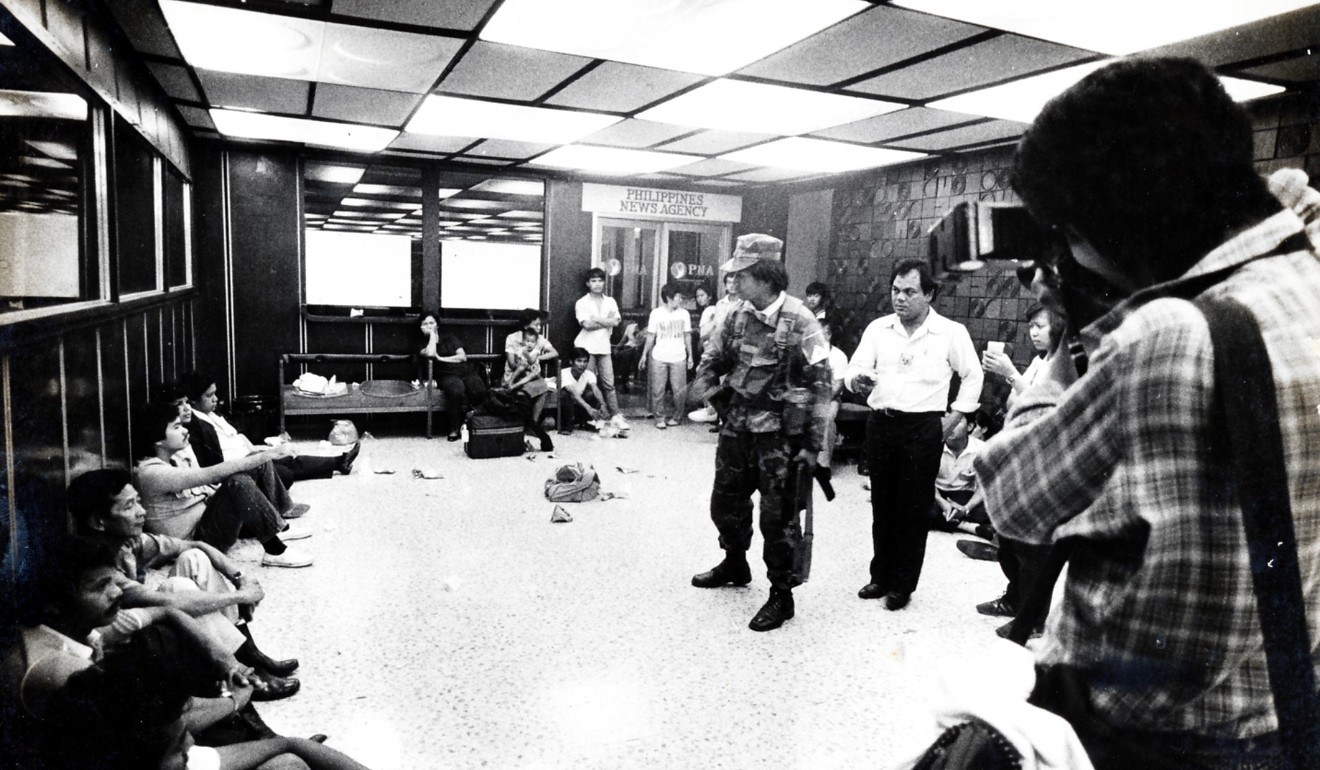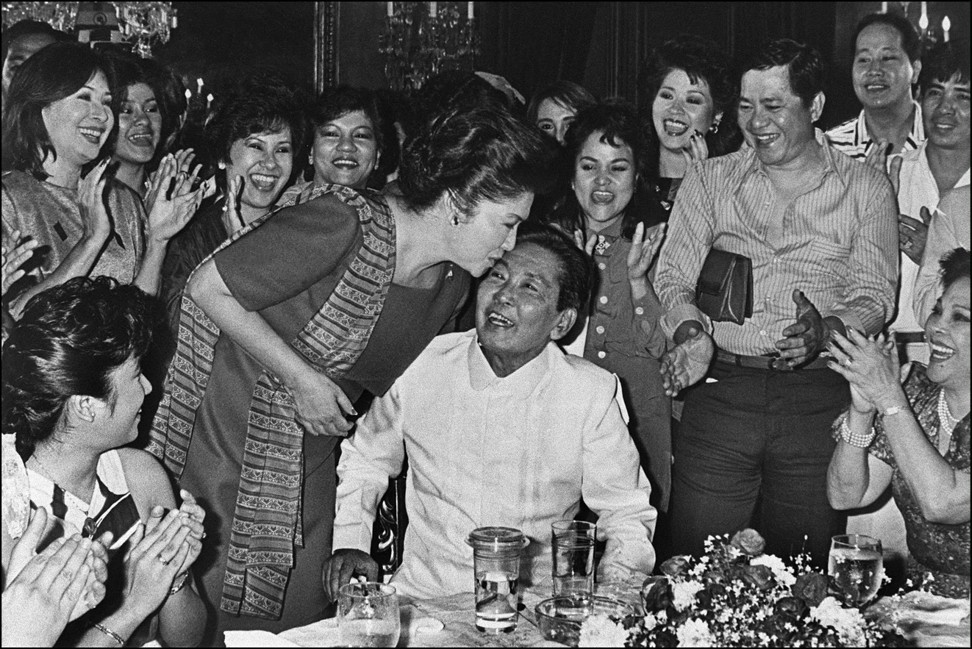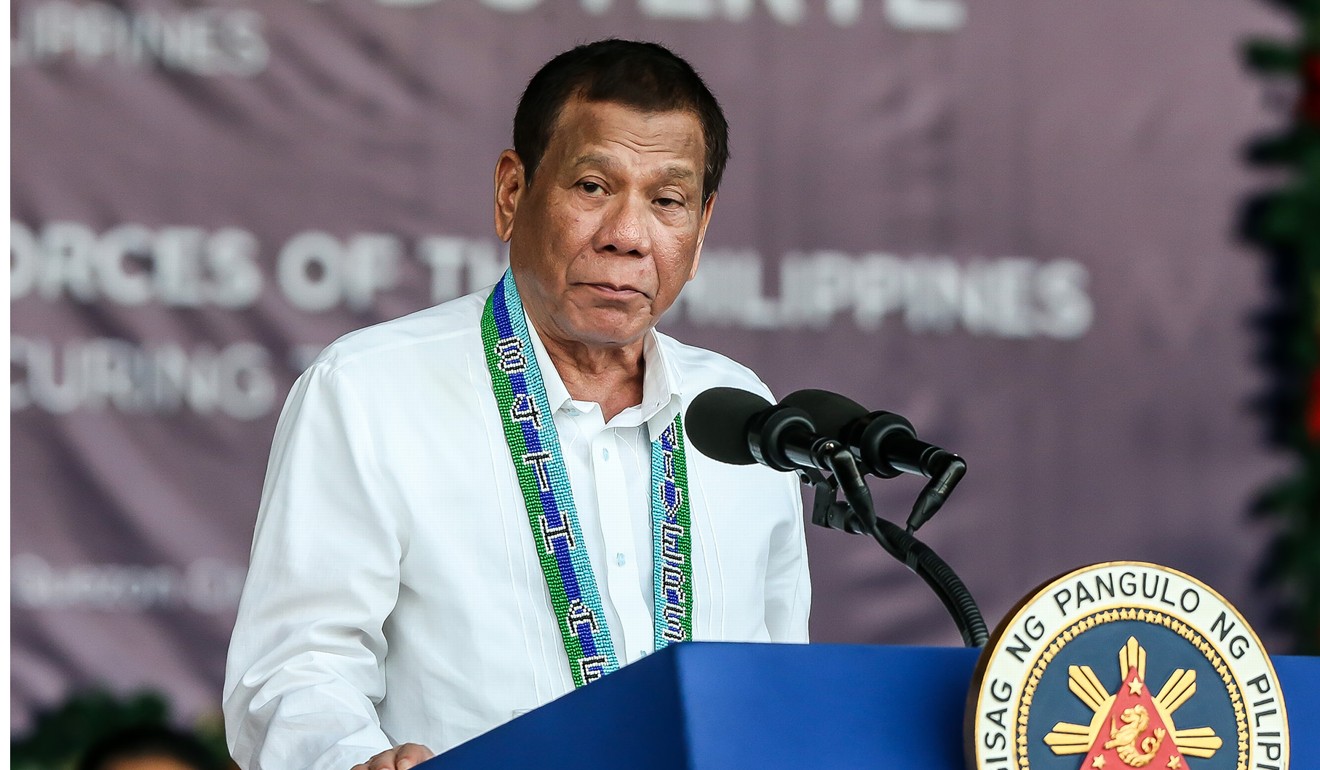The Philippines’ ABS-CBN network is again fighting to survive, 34 years after liberation from Marcos
- Rebel forces freed Southeast Asia’s oldest broadcast network from the clutches of Ferdinand Marcos’ regime on February 24, 1986
- Three decades later, Duterte’s administration is seeking to shut the broadcaster’s operations – unlike Marcos, he won’t need the military’s help

On February 24, 1986, rebel soldiers liberated the Philippines’ ABS-CBN Corporation from the brutal control of the Ferdinand Marcos dictatorship. Now, 34 years later, Southeast Asia’s oldest private TV and radio network once again faces a threat to its existence.
Owned by the powerful Lopez family, the network was shut down and turned into a state propaganda arm on the night Marcos imposed martial law on September 22, 1972. The regime used ABS-CBN facilities to broadcast via MBS Channel 4 and Philippine News Agency.
According to then-Colonel Ramon Montaño: “We were organised into special task forces. The first order was to close the media.”
By the dictatorship’s own admission, 30,000 people were detained in the weeks that followed, including Geny Lopez Jnr, who was the network’s chairman and CEO as well as the nephew of Marcos’ own deputy, Fernando Lopez.
The Lopez family’s sugar land holdings were turned over to Marcos’ favourite generals. The family’s other corporate jewel, power distributor Meralco, was handed over to Imelda Marcos’ brother in return for a mere 10,000 pesos (US$196) and the release of Geny Lopez Jnr.
The Lopez clan and Marcos were by then politically estranged: Lopez Jnr was accused of plotting to assassinate Marcos, who expressed his loathing of the oligarch family in his diaries. Lopez Jnr was never released but escaped in 1977 and went into exile in the US.
The family regained control of ABS-CBN’s network facilities and Meralco in 1986, when the revolutionary government of Corazon Aquino took office. Rebel troops swooped in and wrested control of the facilities, abruptly cutting off Marcos midway through a broadcast.
I covered the event and kept close to the yelling, long-haired Colonel Rodolfo Aguinaldo, who led the operation. I later learned he tortured thousands of people accused of being communists, including a journalist I know.
On Monday, the 34th anniversary of the liberation of ABS-CBN from Marcos forces, the company found itself again under threat as it pleaded with the Philippine Congress to be allowed to renew its franchise to operate for another 25 years, with a third-generation Lopez family member appearing before a Senate hearing.

The difference today is that President Rodrigo Duterte, unlike his idol Marcos, does not need the armed forces to shut the network.
Duterte’s government earlier this month moved to strip the franchise of ABS-CBN over alleged legal violations and “highly abusive” business practices through the use of a “quo warranto” suit – a petition that questions the authority of a person or company. These petitions have been highlighted by critics as a tool favoured by the Duterte administration to target detractors.
Solicitor-general Jose Calida, an avowed Marcos loyalist, on February 10 filed a quo warranto suit consisting of more than 1,000 pages before the Supreme Court. The petition asked the court to block a list of activities including ABS-CBN’s franchise to operate TV and radio stations, which it had obtained from the Philippine Congress.
A similar “quo warranto” petition was used by Calida to oust then-Supreme Court Chief Justice Maria Lourdes Sereno in 2018. Duterte’s spokesman, also a Marcos loyalist, has denied Calida’s complaint against ABS-CBN was directed by the presidential palace.
The most serious charge against ABS-CBN was its use of the financial instrument called Philippine Depository Receipts (PDRs), which are sold to both local and foreign investors. The petition argued this skirted the constitutional restriction that media entities had to be 100 per cent Philippine-owned.
In 1999, the family holding firm Lopez Inc listed ABS-CBN Holdings Corporation for the sole purpose of holding PDRs. All dividends earned by PDRs are coursed through ABS-CBN Holdings, which then distributes the dividends to PDR holders, minus a management fee, but retains ownership of the underlying shares.

Calida’s suit warned “criminal liability is also imposed on those who violate foreign equity restrictions and evade nationalisation laws of the Philippines through various modes of proxy arrangement, making it appear as legal, but the entirety of the arrangement is to accomplish a transaction not allowed under Philippine laws”. He argued he would be remiss to not file the suit.
PDRs have remained a grey area with no definitive court ruling.
However, around the same time Duterte was lambasting ABS-CBN, he had also signed the Republic Act No. 10925 into law in April 2017, renewing the broadcast franchise of GMA Network, ABS-CBN’s rival.
Like ABS-CBN, GMA Network has also been issuing PDRs through a separate corporation – GMA Holdings Inc – created on February 15, 2006, solely for holding the PDRs, according to the Philippine Stock Exchange website.
During Monday’s Senate hearing on the franchise of ABS-CBN, a Securities and Exchange Commission official confirmed both ABS-CBN and GMA have PDRs. But no one mentioned the fact Duterte himself had renewed GMA’s broadcast licence for another 25 years, despite its PDRs, and Calida had raised no objection.

Duterte’s hostility towards ABS-CBN is well established. For the past three years he has been hurling expletives at Eugenio “Gabby” Lopez III, the chairman emeritus of ABS-CBN Corporation. He has also accused the network of “swindling”, alleging it took his payments for political ads but never aired them during the 2016 presidential campaign.
The president also slammed ABS-CBN for airing a political ad made by former senator Antonio Trillanes which accused him of extrajudicial killings, and for extensively covering Trillanes when he accused Duterte of secretly stashing 2 billion pesos (US$39 million) in undeclared bank deposits.
During the hearing, the network’s CEO and president Carlo Katigbak – Geny Lopez Jnr’s nephew – explained that all 117 million pesos worth of national ads bought by the Duterte camp during the 2016 campaign were aired, and only 7 million out of 65 million pesos of local ads bought were unaired.
Part of the refund to Duterte was delayed and the president refused to accept it, Katigbak said.
As for the Trillanes ad, Katigbak apologised if they “offended the president”, but added that the Fair Election Act enjoined networks to air political ads for and against any candidate.
A groundswell of public support has brought pressure to bear on lawmakers allied with Duterte to renew the franchise. Opposition Senator Risa Hontiveros pressed Congress, though, to pass a “pro-worker franchise” to compel the network to ensure job security, improve labour practices and settle “contractualisation issues” for most of its 11,000 workers.